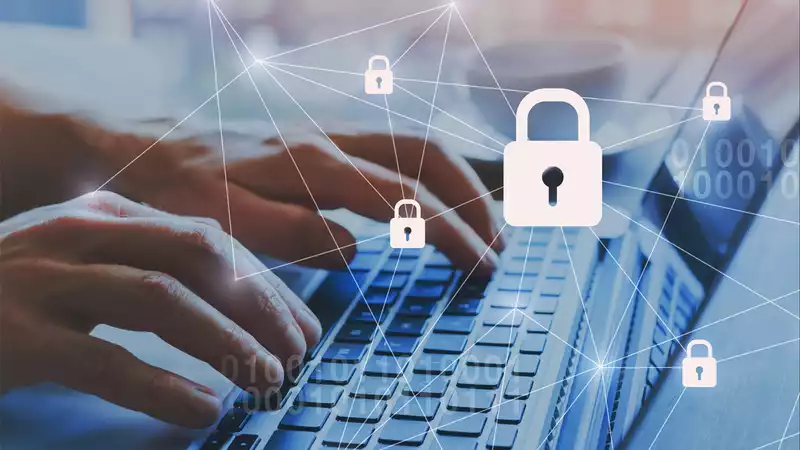The best VPN providers allow users to perform a number of tasks that are often impossible without their technology. Most services allow for streaming geographically restricted content, and all of them should provide an extra layer of privacy and anonymity, what makes a VPN truly secure.
This article discusses the key attributes that make a VPN secure. Use it to help you determine which VPN will provide you with the security you need most, whether you are using the Internet from the comfort of your home or Wi-Fi router, or using a public Wi-Fi network on the go.
One important security factor to consider when deciding on a VPN is how much information the VPN provider collects. To find the answer, what you should look for is a comprehensive no-logging policy.
Essentially, this policy clearly communicates that the VPN service will not collect any information that is passed over the network. This information may include personally identifiable information (PII), download data, search history, or other sensitive information that you do not want to share.
Check the provider's privacy policy to see if they store any other information and, if so, for how long VPN servers, like all servers, are vulnerable to cyber attacks and can be targeted even with adequate security measures in place. VPN servers, like all servers, are vulnerable to cyber attacks and can be targeted even if they have adequate security measures in place. Furthermore, if the provider is coerced by the government, any stored data could be turned over to the authorities.
VPNs encrypt your Internet traffic, making it nearly impossible for cybercriminals to decrypt it even if they somehow intercept it. Most VPN providers use the well-known and highly secure AES-256 encryption as standard
However, encryption is only part of a set of security features that VPN providers use to protect your web traffic. There are many other processes, but they all fall under the umbrella of good security practices.
OpenVPN is still widely regarded as the most secure VPN protocol and is used by almost all VPN providers, but the recently introduced WireGuard is also very popular, offers a better combination of speed and security than previous alternatives. And while WireGuard is generally considered faster, OpenVPN is still more widely used.
Some providers, like Hotspot Shield, have developed their own protocols (in Hotspot Shield's case, the Catapult Hydra protocol), and these have their pros and cons. Some prioritize speed over security, while others are not open source. However, the wave of new in-house protocols is largely based on WireGuard, and if you want to know more, check out Is WireGuard Secure?
One of the most important security features of a VPN is the kill switch. This important feature means that if the VPN loses the connection, your browsing session will be terminated. Some VPNs will also cancel programs or sites that you do not want to access without VPN protection in a preconfigured manner; continued browsing without VPN protection may result in interception of your Internet traffic.
In short, if you are looking for a VPN with top-notch security features and one of the options you are considering does not have a kill switch, ignore it. You would be much better off choosing a similar alternative that has this feature.
To gauge the reliability and security of a VPN provider, it is necessary to find out if the provider has been vulnerable in the past, especially if IP address leaks have occurred.
Masking IP addresses is a top priority for VPN services, so if this is breached and IP addresses are leaked, the platform has essentially failed The best VPN providers, such as ExpressVPN, are the ones that have Perfect Forward Secrecy (PFS). This is a technology that creates a new privacy key each time you initiate a VPN-enabled browsing session, which cannot be used to access past or future data, even if your traffic is somehow decrypted. To ensure maximum security, keys are changed at regular intervals during use.
The standard encryption model uses a single privacy, or private, encryption key that is used to decrypt all current and historical data. If an attacker can gain access to this key, more information may be available.
Another feature to note is IPv6 leak protection; IPv6 is more secure than the previous generation of IP addresses, namely IPv4, but is still vulnerable.
Since IPv6 is not supported by many websites, some VPNs cannot detect IPv6 traffic, and as a result, DNS requests may be made outside of the VPN. IPv6 leak protection is a feature that allows IPv6 during a VPN session traffic and counters this by disabling traffic.
VPN technology has many features, but many users use VPNs for the security they provide. However, not all providers offer the same level of protection. Many providers focus on streaming and torrenting capabilities, making the highest level of security secondary.
If security is a priority, use this article as a checklist before choosing a provider. If the service you are considering does not check all the boxes, opt for another. Many people will want to try a free VPN before signing up for a paid plan. If you decide to go this route, be aware that most free services do not offer anything close to the level of protection you receive from a paid provider.
.









Comments